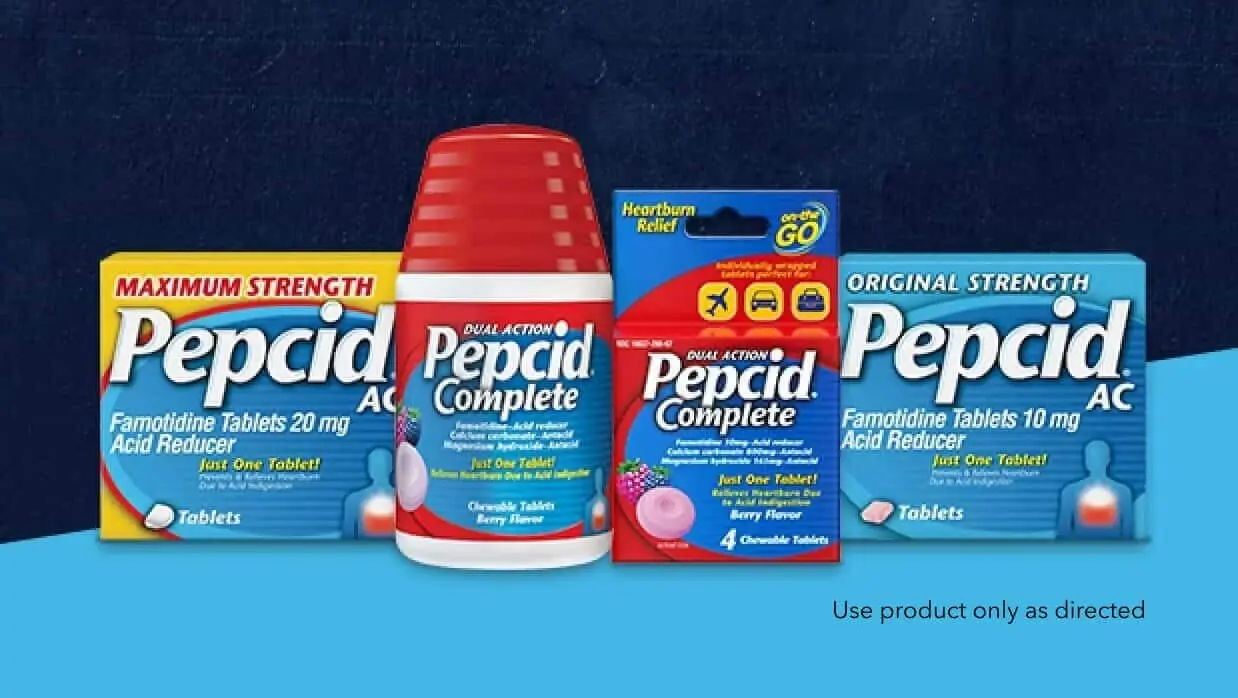Heartburn and pregnancy often go hand-in-hand. Many women begin experiencing heartburn early in their pregnancy, and it often continues until the baby is born. For some women, pregnancy is the first time they experience this symptom1. Among women who have previously dealt with heartburn, pregnancy may make the condition worse1.
Make sure to tell your doctor about any new or changing heartburn symptoms. There may be simple solutions to help prevent or manage your symptoms.
What Causes Heartburn During Pregnancy?
In general, heartburn happens when stomach contents travel back up into the esophagus, the tube that leads from the mouth to the stomach. At the bottom of the esophagus, the lower esophageal sphincter (LES) muscle opens and closes to allow food into the stomach. The LES is typically closed when you are not swallowing. However, when this muscle is more relaxed, it may allow some of the undigested food and stomach acid to flow upward into the esophagus1. This is known as acid reflux.
Acid Reflux Triggers
Several different factors can cause heartburn to occur during pregnancy. One trigger includes hormones like progesterone, which your body produces at high levels while you are pregnant. Progesterone relaxes the LES, increasing the chances that stomach contents will leak into your esophagus2. In addition, progesterone relaxes muscles in the digestive system, preventing the stomach from emptying as quickly. The longer your stomach remains full of food, the more likely you are to experience the symptoms of heartburn2.
Certain medications can also increase acid reflux during pregnancy. If you take drugs to treat nausea or high blood pressure during pregnancy, you may experience heartburn as a side effect1,3.
Another cause of heartburn in pregnancy is the pregnancy itself. As the baby grows, the uterus puts more pressure on the stomach. This pressure can push the contents of the stomach upward and into your esophagus, causing you to experience heartburn4.
When Does Heartburn Start in Pregnancy?
Symptoms can begin at any time during pregnancy. Some women may notice heartburn right away, during the early stages of pregnancy. However, symptoms tend to be mild and infrequent. One study found that one out of eight women experience heartburn once per week or more during the first trimester5.
Heartburn becomes more common as pregnancy progresses, and symptoms tend to worsen. The further a pregnancy progresses, the more frequently symptoms appear. By the third trimester, most women experience signs of acid reflux several times per week or, in some cases, every day5.
Some women who experience heartburn in pregnancy have never had this issue before. For women who deal with acid reflux before becoming pregnant, heartburn during pregnancy may be more severe6.
Symptoms of Heartburn During Pregnancy
During pregnancy, you may experience common heartburn symptoms such as7:
A burning feeling in the middle of your chest, under your breastbone
Pain or burning sensations in your throat or the back of your mouth
A sour or acidic taste in your mouth or throat
These symptoms may get worse at certain times, such as after eating, at night, while lying down, or when bending over7.
How Can Heartburn Symptoms Be Prevented and Reduced?
It may be difficult to completely block all feelings of heartburn during pregnancy, but you can take several steps to reduce the frequency and severity of the symptoms you experience. First and foremost, talk to your primary care provider or obstetrician. Under their supervision, you may be able to try various remedies such as avoiding foods that trigger your heartburn.
Dietary Modifications
Certain foods are more likely to trigger symptoms of heartburn. One of the best ways to prevent heartburn while pregnant is to avoid things like1:
Spicy foods
Fatty foods
Citrus fruits and juices
Tomatoes and tomato products
Chocolate
Mint
Carbonated drinks
You can also make other changes to your eating habits to get heartburn relief during pregnancy. For example, many pregnant women notice their symptoms are worse if they eat meals later in the evening. Try to eat your last meal of the day at least three or four hours before you go to bed1. This gives your food more time to be digested and cleared out of your stomach before you lie down, which may reduce heartburn.
Eating at a slower pace can also help you manage your heartburn. When you eat quickly, your food is not chewed as thoroughly and you are more likely to swallow air. Both of these issues can worsen heartburn8.
Eating smaller portions can also help manage acid indigestion during pregnancy. Larger meals take up more space in your stomach and are more likely to cause heartburn symptoms, especially as your pregnancy progresses8.
Home Remedies and Tips
Other simple changes to your daily routine may also help you manage your heartburn symptoms. Trading out tight-fitting clothing for looser items may help, especially when you’re lying down. Tight clothing puts more pressure on your stomach, which can make your heartburn worse1.
When sleeping or napping, don’t lie flat. Lying down all the way makes it easier for acid to flow from your stomach into your esophagus. Try raising the head of your bed by putting blocks under the bed legs or sleeping with a wedge pillow1.
Treatment of Heartburn During Pregnancy
Diet and lifestyle changes can help reduce symptoms. However, even with the best preventative measures, you may still experience heartburn while pregnant. Fortunately, relief is possible. Ask your doctor about medications that can reduce acid and ease symptoms.
Some of the remedies for heartburn in pregnancy include:
Antacids: These medications work by neutralizing the acid in your stomach on contact.
Histamine-2 (H2) blockers: PEPCID® is a fast-acting acid reducer that can reduce heartburn symptoms within minutes. If you are pregnant, please talk to your doctor or pharmacist before use to see if PEPCID® is right for you.
Proton pump inhibitors (PPIs): PPIs work by shutting down pumps that release acid into your stomach. They are intended to treat frequent heartburn and are not intended for immediate relief as they may take 1-4 days to fully work. Many PPIs can be safely used during pregnancy9. If you are pregnant talk to your doctor or pharmacist before use to be sure PPIs are the right medication for you.
References
Heartburn. MedlinePlus. Reviewed January 14, 2021. Accessed December 15, 2021.
Vazquez JC. Heartburn in pregnancy. BMJ Clin Evid. 2015;2015:1411. https://www.ncbi.nlm.nih.gov/pmc/articles/PMC4562453/
Law R, Maltepe C, Bozzo P, Einarson A. Treatment of heartburn and acid reflux associated with nausea and vomiting during pregnancy. Can Fam Physician. 2010;56(2):143-144.https://www.ncbi.nlm.nih.gov/pmc/articles/PMC4562453/
Heartburn During Pregnancy. American Pregnancy Association. 2021. Accessed March 1, 2022.
Malfertheiner SF, Malfertheiner MV, Kropf S, Costa SD, Malfertheiner P. A prospective longitudinal cohort study: evolution of GERD symptoms during the course of pregnancy. BMC Gastroenterol. 2012;12:131. doi:10.1186/1471-230X-12-131 [>https://www.ncbi.nlm.nih.gov/pmc/articles/PMC3499455/>]
Pregnancy and Heartburn. Stanford Children’s Health. 2022. Accessed October 18, 2022.
Heartburn: Symptoms & Causes. Mayo Clinic. 2022. Accessed March 27, 2023.
Newberry C, Lynch K. The role of diet in the development and management of gastroesophageal reflux disease: why we feel the burn. J Thorac Dis. 2019;11(Suppl 12):S1594-S1601. [>https://www.ncbi.nlm.nih.gov/pmc/articles/PMC6702398/>]
Gerson LB. Treatment of gastroesophageal reflux disease during pregnancy. Gastroenterol Hepatol (N Y). 2012;8(11):763-764.
Early Signs You May Be Pregnant. UPMC Health Beat. Published August 18, 2022. Accessed October 18, 2022.




